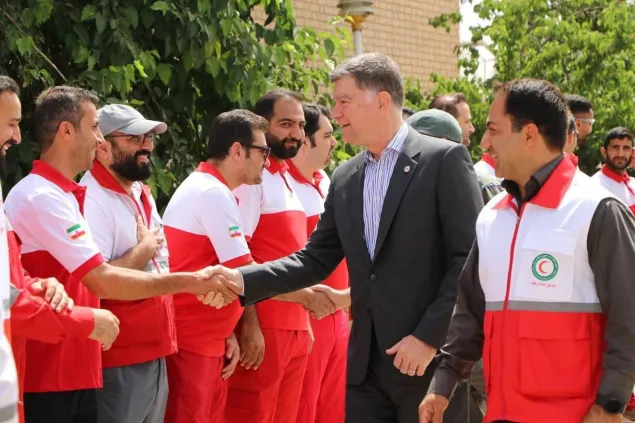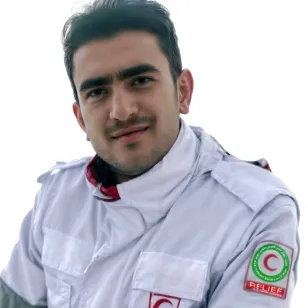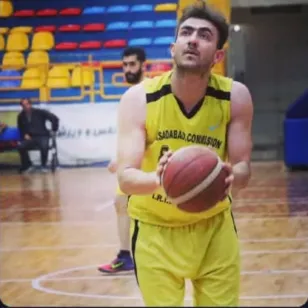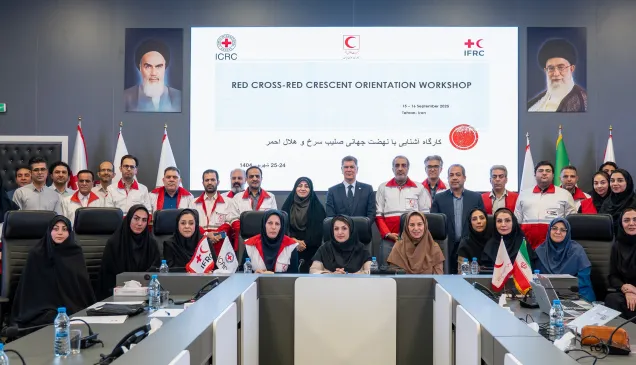Saving lives amid armed conflict: Iranian Red Crescent Society responded swiftly to humanitarian needs during recent hostilities
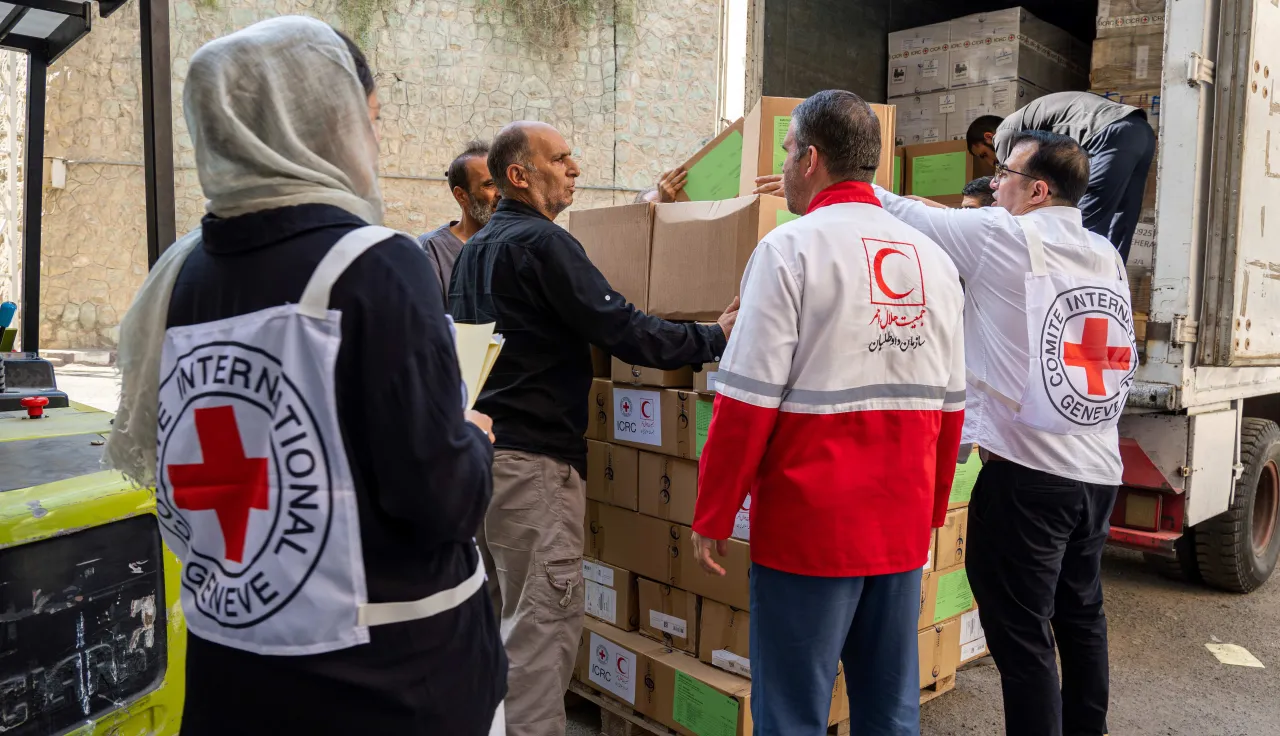
Following the escalation of hostilities between Iran and Israel in June, the situation on the ground quickly deteriorated, leaving many civilians in urgent need of assistance. The Iranian Red Crescent Society (IRCS) was at the forefront of relief efforts, rescuing people trapped under rubble and providing emergency care, often at great personal risk. The International Committee of the Red Cross (ICRC) supported the response of the IRCS, including with shipments of humanitarian supplies.
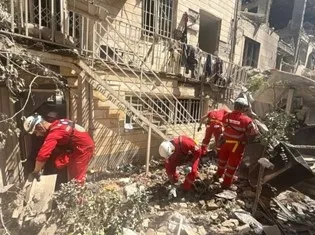
The Iranian Red Crescent Society (IRCS) was at the forefront of relief efforts following the escalation of hostilities between Iran and Israel in June. From the earliest moments of the conflict, IRCS teams worked to rescue civilians trapped under rubble and provide emergency care, often risking their own lives in the process. The International Committee of the Red Cross (ICRC) supported its IRCS colleagues with shipments of humanitarian supplies.
The escalation of hostilities took a heavy toll on humanitarian workers. Five IRCS volunteers lost their lives while responding to the crisis, including Yaser Zivari, a firefighter and long-time IRCS volunteer from Hamedan. Zivari, 37, was killed while responding to a fire. A father to a three-year-old son and expecting his second child, Zivari had been with the IRCS since 2010. Known for his dedication to his community, he was also an avid basketball player and a well-loved figure in his hometown.
In tribute to the dedication of Zivari and all the other IRCS colleagues lost, Vincent Cassard, Head of Delegation of the International Committee of the Red Cross (ICRC) in Tehran, and Pirhossein Kolivand, president of the IRCS, visited Zivari’s family in Hamedan. They expressed their condolences and praised his commitment to humanitarian work.
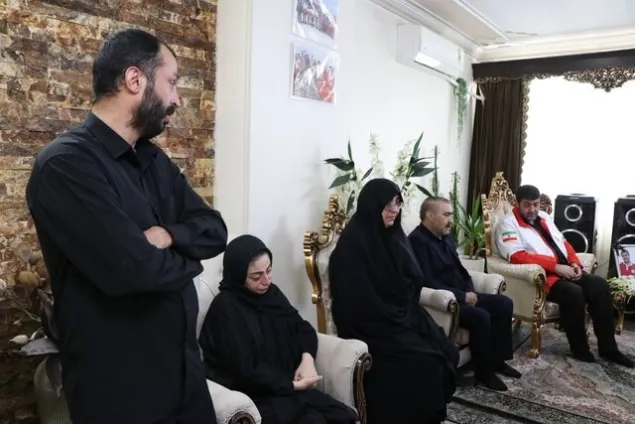
They also toured the local IRCS branch in Hamedan, where Cassard remarked: “I commend the courage and dedication of the IRCS staff who, from the earliest hours of the escalation, were at the forefront – rescuing the injured and trapped, providing life-saving care, assisting the civilian population to cope with the humanitarian impact of the hostilities, and ultimately putting their own lives at risk in these trying conditions. I offer my deepest condolences for the loss of IRCS volunteers. Aid workers must be respected and protected. We stand firmly alongside IRCS, ready to support their humanitarian action in line with our mandate and working modalities.”
The IRCS’s response has been supported by the ICRC, which recently completed delivery of almost 170 tons of humanitarian supplies to replenish stocks depleted during the conflict. The supplies are sufficient to enable setting up five pre-hospital clinics to treat nearly 30,000 wounded individuals or meet the needs of 250,000 people for one month.
“In line with its mandate, the ICRC has delivered four consignments of medical materials and non-food items to support the IRCS’s humanitarian activities,” Cassard said. He added that the ICRC remains in close contact with the IRCS to address any emerging needs.
Praising the IRCS response, Cassard noted that its volunteers and staff had been providing “critical assistance to those affected by the ongoing hostilities, often at grave risk to their lives.”
The ICRC has reiterated the importance of protecting medical and humanitarian personnel, as required under international humanitarian law. It has called on all parties to the conflict to respect the red cross and red crescent emblems and ensure the safety of aid workers and facilities.
